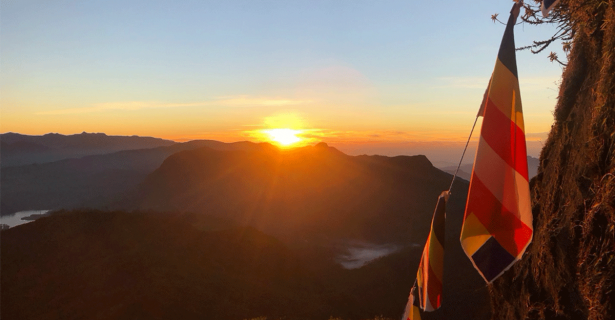The trials of the field researcher lifestyle are not unheard of. The desensitization of perpetual horror, the challenges of self-maintenance in protracted circumstances of stress, the Sisyphus-like struggle to overcome inherent bias and the effects of western research methodology, the inherent nature of being in a new context, one of different language, culture, customs, and understandings; all these have been noted in journals, diaries, memoirs, and have begun permeating academic spaces.
But one challenge I was unprepared to confront was the role of the product of your research as it relates to the people who made it possible. In short, how can you live with the knowledge that those very people who divulged their lives to you may not be pleased with the content following. I have done my best to be upfront and explain the nature of the work, the intended end result, the presence of varying local opinions, and the expected audience. At the beginning of every interview, this information has been relayed, internalized, and agreed to, but come the end, the conversation has concluded, your questions finished, they tell you, “Make sure my story is heard. Make them hear my side.” Well when their story, their “side,” is meant to be a part of a whole, one of dozens, many of which are in opposition to each other, you immediately get a sinking feeling that you have wronged them. You know you were honest about the project, everything was translated correctly, their consent was received, but you cannot blame them. You just asked them to re-live a potentially traumatic experience and now in return, they ask you to use it wisely, or as such would be seen in their eyes. You of course cannot promise them what they seek, and leave knowing you just made an imbalanced transaction.
Never would I deny someone from reading a report that they themselves were so integral in helping produce, but I fear that moment. I fear that the cherished memories they have just entrusted to me, no matter my opinion of their content, are about to be defiled. To some extent, this might be hyperbole with essences of a savior complex, but I do imagine it is not the first time a researcher has felt this burden of responsibility, not even to fulfill unachievable goals, but to produce something that might in fact counteract them.
I understood in theory before, the criticisms of field research and its ethical integrity. I understand it in practice now too. I am an immature researcher in many regards and as such am naïve and undeveloped in my perspectives. And yet, I still think there is value in this work.
Academia struggles with providing relevant and contemporary first-hand accounts and will forever continue to do so. Field research is expensive, logistically challenging, and as discussed, takes its toll on the investigator. But, to understand a complex situation, there is irrefutably no better place to be than in the midst of it. In doing so, you are more likely to humanize the participants with greater care, to see through local eyes, and be more cognizant of the procedures and conduct of your research so as not to upset or offend those around you.
Most of all, you are, and with guarantee will continuously be reminded, as I have been on so many occasions, the hopeful cliché that people are inherently good. In the midst of war, death, and violence, humans show both their darkest moments and greatest acts of true kindness. Even in my current research now, it is clear that the duality of both is missed, for the former is much easier to incite immediate action than the latter.
Researchers will continue to struggle with the ethical challenges of their work, confronting stark realities and brutal narratives – a need to look at and understand the history of an event or series of events. But that may not be the whole story, something that I as a researcher learned in my work in Sri Lanka. While the truths of war are necessary, in doing my research I have learned that the truths of peace are just as relevant, and in conflict settings, perhaps more important. With caution to these challenges, I will stay and finish out my intended exploration. It may not be to the expectations of each individual I meet, but it will be a compilation of many perspectives, that through it all, begin to form a whole; a whole of diverse individuals who above all else, want to coexist.

